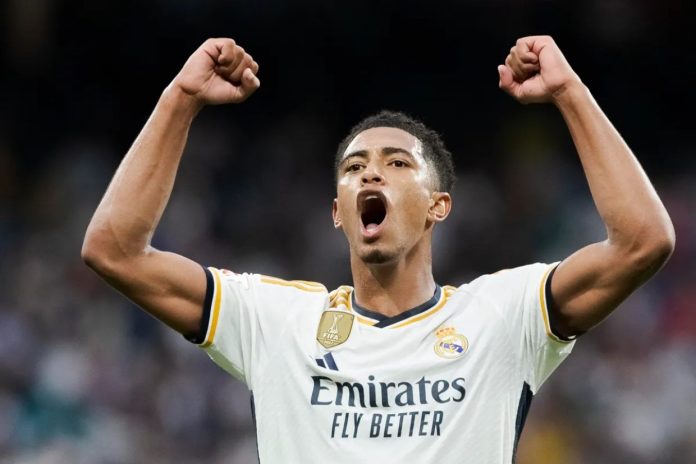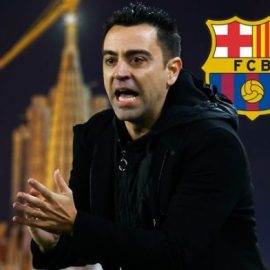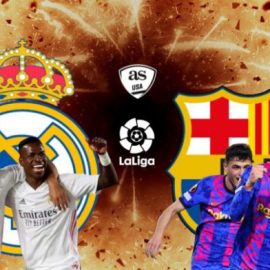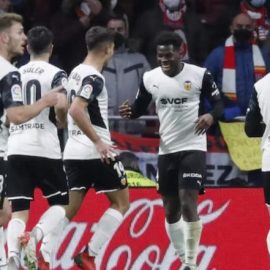When will Real Madrid learn? After six long years of being ignominiously dumped out of the Champions League at the last 16 stage their philosophy has not changed. The most important words in the aftermath of a match they approached with their customary, misguided arrogance were spoken by Guti who said bluntly: “We should have played more like a team instead of playing like a group of individuals. In the second half, we didn’t play as we should.”
He’s dead right. In the second half of the game against Lyon, many of their forward players were standing still and petulantly waving their arms when they lost the ball instead of endeavouring to get it back. This despite repeated uttering’s from squad members that they are a team, working hard each for each other. Unfortunately, their actions do not much their words.
Of course, the official line is that this is a long term project – Perez has bought young players, and the hope is that they mature and gel as a team. They have shown glimpses this year that they can be a force, but this is generally against teams in Spain who, in the words of Ronaldo himself, play more technically and at a slower pace than their English counterparts. They are not pressed in La Liga in the manner in which they are in Europe, and are consequently able to play an expansive game that relies heavily on individual expression.
They would do well to learn from their rivals. Barcelona’s stunning success last year was founded on Guardiola achieving a synthesis of styles – not only were his team capable of the intricate pass and move aesthetic traditionally favoured by the Catalan club, but he had the team pressing their opponents when shorn of the ball with exceptional intensity. He deserves immense credit for surveying the football landscape and adapting his team accordingly.
Yet despite signing several players who have played in England before, Real are seemingly ignoring this aspect of modern football. And it’s a marvel that they spent £240 million Euros on players, and are unable to field a balanced side, a fact that makes a mockery of their decision to sell Arjen Robben who was not only a standout performer, but gave them natural width too.
Ronaldo and Kaka in the same team is problematic. Despite Ronaldo’s rise as an out and out winger, as he has matured he has drifted further inside and now plays as a forward, occupying much of the space Kaka likes to operate in – a problem he also had for Brazil with Ronaldinho.
If you are going to play a system comprising three midfielders and three forwards, then two of those forwards have to break out wide and feed the striker in the centre – the way Manchester United played this system, with Luis Nani and Antonia Valencia flanking Wayne Rooney against AC Milan, or equally, Arsenal with Andrei Arshavin and Tomas Rosicky outside Niklas Bendtner against Porto this week, are prime examples of how to do it properly – yet Madrid’s forward line is essentially unbalanced. The result is that players are often competing for space in very narrow areas, and furthermore, without clearly defined roles, they are, at root, competing for the limelight as well.
When Real Madrid last won the Champions League, they successfully married star signings with a team ethic, largely because they were held together by Claude Makelele, one of the finest defensive midfielders to have graced football; one so good in fact, that the position he occupied is immortalised in his name. They were also blessed with the last vestiges of a team put together before the inception of their cock-eyed, fantasy football like notions of supremacy manifested initially, by the ridiculous Zidanes Y Pavons policy.
Their esurience and principles reek of Hollywood, and as such are a reflection of a societal superficiality whose essence is a swirling, vacuous mix of money and artificial beauty. These notions of success they cling to are as much to do with selling shirts as winning trophies, and whilst winning trophies can lead to many shirts sold, the principal doesn’t really work in reverse.
It may seem churlish and prejudicial to single Madrid out as representing something ill formed and malevolent in today’s football, as others have spent, and spent vast sums at that, but the curious mix of a deep seated sense of entitlement to the worlds best players, arrogance, and the fact they have continually blamed a succession of extremely able managers for what is their teams, and ultimately, their clubs failure, has contrived to sully their image immeasurably. People quite simply like to see them fail.
Real Madrid’s preoccupation with glamor and glitz is a chancre on their continued dreams for success. And the fact they have hired and fired a stunning 9 managers in 7 years says all you need to know about them. It’s now rumoured they have turned their covetous eyes to Arsene Wenger, which shouldn’t worry Arsenal fans for a second. Firstly because Wenger has already said there is no chance of it happening, but more importantly, because he is fundamentally ideologically opposed to everything the club stands for at this point in time; especially holding players in higher regard than your manager. Maybe one day Real Madrid will learn from their mistakes, but until then, they will remain a club without the dominance they crave.
Add Sportslens to your Google News Feed!






